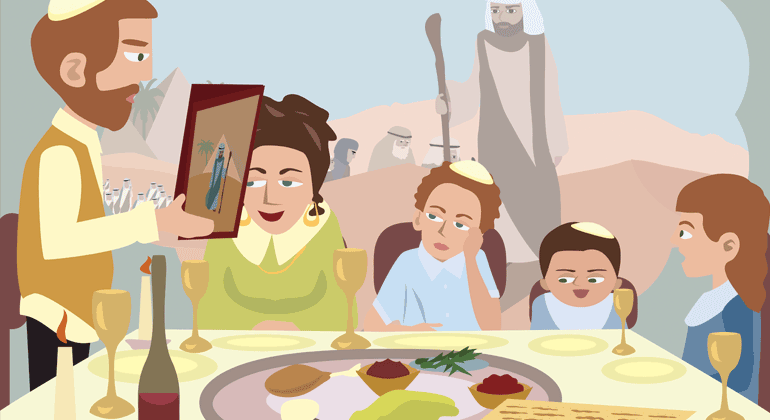The Deeper Meaning of Passover

I must admit, as a child, Passover was my least favorite Jewish holiday. As a carb-lover, bagels, noodles, sticky white rice and cereal, were a large part of my diet. Abstaining from those foods was a serious challenge.
I was the youngest at our Seder so the mere thought of chanting the four questions in Hebrew (though, thankfully with my cousin) was daunting!
Obviously, I didn’t fully grasp the significance of Passover. As an adult, I’ve since come to appreciate the deeper meaning of the holiday. As a parent, I realize that I am obligated to tell the Passover story and convey its message to my own children.
The Seder and the Pesach meal are full of themes and symbols relevant to our lives today. For example, we have all learned the symbols of the six items on the Seder plate. This year, bring new insight and a deeper connection into the holiday and your Seder with these six concepts:
Freedom and Social Justice
Haggadah means “to tell.” Each year on Passover we tell the story of Exodus to remind us that we were once enslaved. We remember and retell the story of our own enslavement to have compassion and understanding of others who are persecuted.
Personal Freedom
Passover is also a time to reflect upon our own personal confinement. As we eat the Matzah consider what personally holds us back. What are we enslaved to? To obtain personal freedom, we need to let go of what personally confines us.
Matzah and Chametz
The Matzah, made only of flour and water, represents our pure selves.
The puffed up Chametz (or leavened foods) symbolize the negative forces that keep us from our pure, essential selves such as materialism or arrogance. While you avoid Chametz think about what “puffs” you up.
The Four Questions
The Haggadah, based on asking questions, illustrates the importance of actively using our minds to learn. In fact, the original purpose of the Seder was to elicit curiosity, to ask questions and acknowledge the fact that we don’t always know all the answers. The four questions give the youngest child at the Seder a role so they too are involved and curious.
The Four Types of Children
The four sons in the Haggadah— the wise, wicked, simple and unknowing— represent each of us. We can each identify with and are a blend of all four characters. The four sons also signify the different styles of learning.
Gratitude
Like many of the Jewish holidays, Passover is also a time to express gratitude. Deyanu, one of the songs after the Pesach meal, inspires us to be grateful for what we do have and to recognize that everything we have at that very moment is enough.
I wish you a happy and meaningful Passover!






